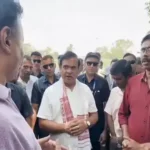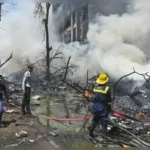
- FAIMA has announced a nationwide suspension of elective medical services starting Monday to support protesting junior doctors in West Bengal.
- Emergency services will remain functional 24/7 despite the shutdown to ensure urgent care for patients.
- Junior doctors in West Bengal are protesting after the death of a woman medic, demanding justice and better safety measures for healthcare workers.
Why are doctors across India uniting in protest?
The Federation of All India Medical Association (FAIMA) has declared a nationwide shutdown of elective medical services starting Monday, as a show of solidarity with junior doctors in West Bengal. These doctors have been on a hunger strike since October 5, following the death of a woman medic at RG Kar Medical College and Hospital. Despite appeals, no satisfactory action has been taken by the state government, prompting FAIMA to escalate the issue to a national level. Junior doctors are also raising concerns about violence against healthcare workers and safety in hospitals.
FAIMA’s decision underscores the growing frustration among the medical community, who feel that their voices have been ignored. While elective services are suspended, FAIMA has stressed that emergency services will continue uninterrupted, ensuring that patients requiring urgent care will not be affected.
What are the broader implications of this protest for the healthcare system?
The decision to shut down elective services is not taken lightly, as it impacts patients awaiting non-urgent surgeries and treatments. However, FAIMA and the protesting doctors emphasize that their stand is crucial for the safety and dignity of healthcare workers. Many doctors have faced violence and inadequate working conditions, and they believe that this protest is necessary to prompt government action.
Ensuring Patient Care During the Shutdown
While elective services will be unavailable, the medical community has prioritized patient safety by keeping emergency departments open. The strike highlights the dire need for systemic changes to protect healthcare professionals and ensure better working conditions in hospitals. As the shutdown begins, the government’s response will be crucial in resolving the crisis and addressing the doctors’ demands.




































Leave a Reply